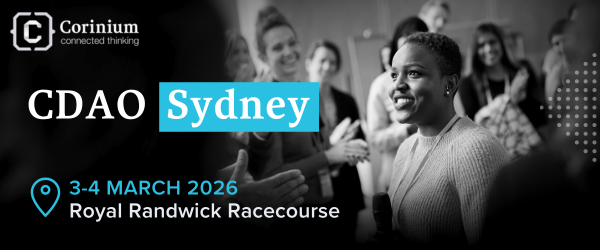Data with Purpose: Human-Centric Leadership in the Age of AI
-1.png)
Su Jella, Board Member of Women's Tennis Foundation, recently shared her candid thoughts on the future of data, the evolving role of AI, and why human-centric leadership now sits at the heart of successful transformation. Drawing on more than 15 years of experience architecting enterprise strategy, uplifting talent, and championing innovation, she reflects on the lessons, challenges, and philosophies that are reshaping the data and analytics landscape — and why organisations must focus on people, not platforms, to unlock meaningful impact.
Data with Purpose: How Human-Centric Leadership Is Redefining Analytics in the Age of AI
In a world where organisations are collecting data at unprecedented speed, the real competitive advantage no longer lies in volume — it lies in interpretation. Today’s most impactful data leaders are those who can translate complexity into clarity, bridge technical and human perspectives, and convert insight into meaningful action.
Su Jella, a globally recognised data and analytics leader and award-winning innovator, has built her career on one powerful principle: data is only valuable when it drives human outcomes. Her journey — from market research to enterprise strategy and capability leadership — has cemented her belief that the future belongs to organisations that treat data not as a technical asset, but as a storytelling instrument that shapes choices, behaviours, and impact.
From Data Collection to Human Insight
Across industries, the mistake many organisations make is assuming that more data equals better decisions. Su argues the opposite. Data only becomes transformational when we understand why people behave the way they do and what decisions the organisation is trying to influence.
The shift from “what the data says” to “what the data means” has defined her leadership approach. Her work demonstrates that the strongest analytics functions are those built on empathy, behavioural understanding, and a clear narrative that moves stakeholders from insight to action.
Building Future-Ready Capability — Not Contractor Dependency
One of the biggest structural challenges in data transformation is the overreliance on external contractors — a pattern that often leads to high cost, slow delivery, and minimal capability retention. Instead of accepting this as the norm, Su pioneered talent-development programs that upskilled internal teams, paired analysts with contractors, and embedded certification pathways that accelerated skill growth.
The results were tangible:
- 80% retention of internal data talent
- More than $2 million in annual cost savings
- Stronger data quality and delivery velocity
- Teams with deeper situational knowledge and confidence
The lesson is clear: technology transformation fails if people transformation is ignored. Sustainable capability — not purchased capability — is what drives long-term maturity.

Culture Before Tools: The Real Barrier to Data-Driven Decision Making
When transformations stall, it is rarely due to a lack of data, tools, or dashboards. The true barrier is culture. Su’s framework for shifting organisations toward decision intelligence is built on five pillars:
- Tell a compelling story with data — insights must connect to human needs and business moments
- Embed decision intelligence — link insight to action, accountability, and outcome
- Democratise with guardrails — empower people while protecting trust and quality
- Build durable data foundations — scalable architecture that earns confidence
- Solve real pain points — for customers and employees, not the vanity metrics
This approach turns data stewardship into a shared responsibility, not the burden of the analytics team — a key maturity marker that most organisations still struggle to reach.
AI, Collaboration and the Next Frontier
Su’s outlook on the future of AI is neither fear-based nor blindly optimistic — it is collaborative. The next era of transformation, she believes, will be defined by human-AI partnership, not automation alone. AI will help educators personalise learning, engineers accelerate climate modelling, and clinicians predict health issues before symptoms arise. The opportunity is societal, not just operational.
She envisions a future where AI becomes as fundamental as electricity, and where organisations measure success not only by financial outcomes, but by social contribution and ethical impact.
The Leadership Mindset for Tomorrow
For Su, the lesson she shares consistently — whether on global stages, in boardrooms or mentoring emerging leaders — is simple: stay authentic, stay curious, and stay human.
Technology will keep evolving. Tools will change. AI will rewrite the rulebook again and again. But the leaders who will shape the future are the ones who remain lifelong learners, grounded in purpose, and committed to unlocking human potential through data.
Su Jella is a speaker at CDAO Sydney 2026. Interested in learning more about Data? Join us at CDAO Sydney this March!
Also don't miss Data & AI Architecture Sydney and Enterprise AI Sydney, happening in the same space as CDAO Sydney!
Photo by Nick Fewings on Unsplash

.png?width=352&name=Featured%20Images%20(36).png)
.png?width=352&name=Global%20Innovators%20in%20Data%20%26%20Analytics%20Top%20100%20Report%2c%202022%20(1).png)
